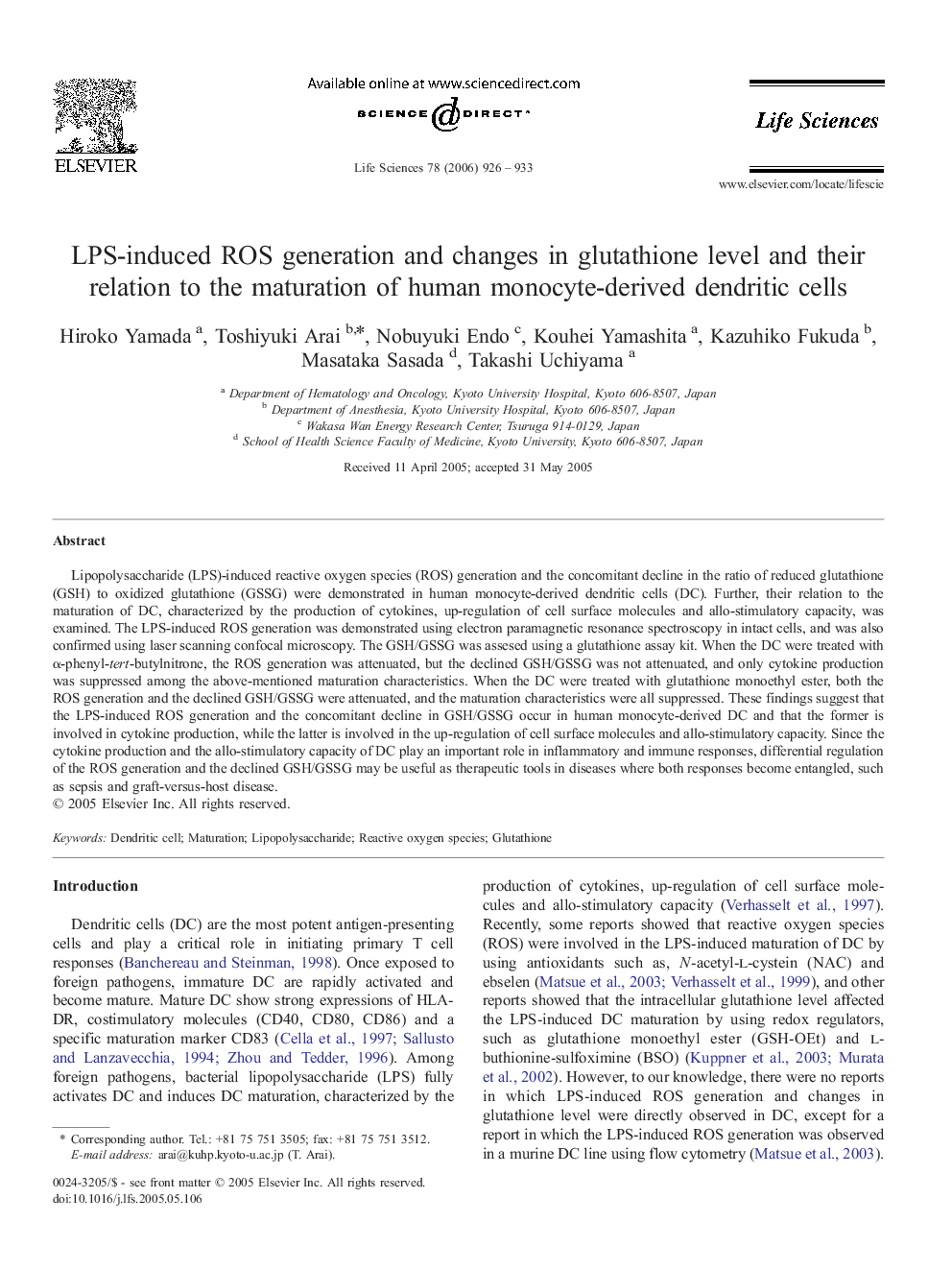| کد مقاله | کد نشریه | سال انتشار | مقاله انگلیسی | نسخه تمام متن |
|---|---|---|---|---|
| 2554527 | 1124974 | 2006 | 8 صفحه PDF | دانلود رایگان |

Lipopolysaccharide (LPS)-induced reactive oxygen species (ROS) generation and the concomitant decline in the ratio of reduced glutathione (GSH) to oxidized glutathione (GSSG) were demonstrated in human monocyte-derived dendritic cells (DC). Further, their relation to the maturation of DC, characterized by the production of cytokines, up-regulation of cell surface molecules and allo-stimulatory capacity, was examined. The LPS-induced ROS generation was demonstrated using electron paramagnetic resonance spectroscopy in intact cells, and was also confirmed using laser scanning confocal microscopy. The GSH/GSSG was assesed using a glutathione assay kit. When the DC were treated with α-phenyl-tert-butylnitrone, the ROS generation was attenuated, but the declined GSH/GSSG was not attenuated, and only cytokine production was suppressed among the above-mentioned maturation characteristics. When the DC were treated with glutathione monoethyl ester, both the ROS generation and the declined GSH/GSSG were attenuated, and the maturation characteristics were all suppressed. These findings suggest that the LPS-induced ROS generation and the concomitant decline in GSH/GSSG occur in human monocyte-derived DC and that the former is involved in cytokine production, while the latter is involved in the up-regulation of cell surface molecules and allo-stimulatory capacity. Since the cytokine production and the allo-stimulatory capacity of DC play an important role in inflammatory and immune responses, differential regulation of the ROS generation and the declined GSH/GSSG may be useful as therapeutic tools in diseases where both responses become entangled, such as sepsis and graft-versus-host disease.
Journal: Life Sciences - Volume 78, Issue 9, 25 January 2006, Pages 926–933